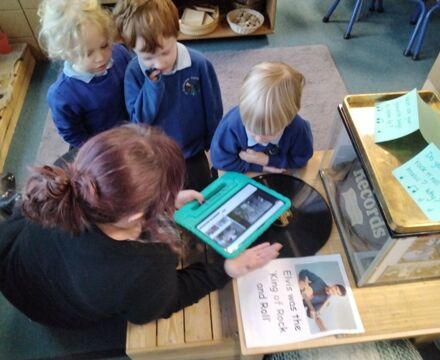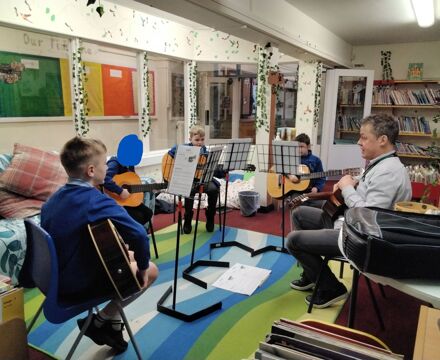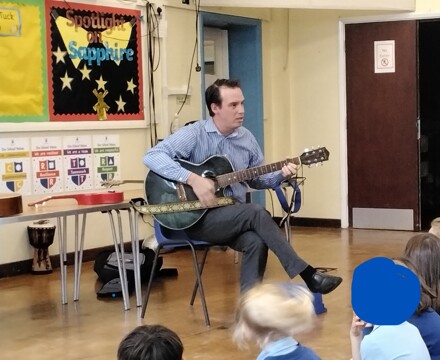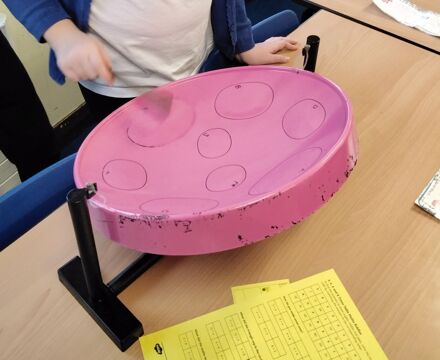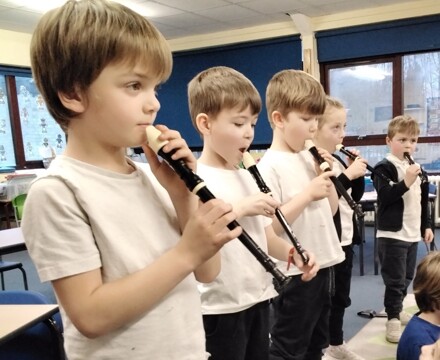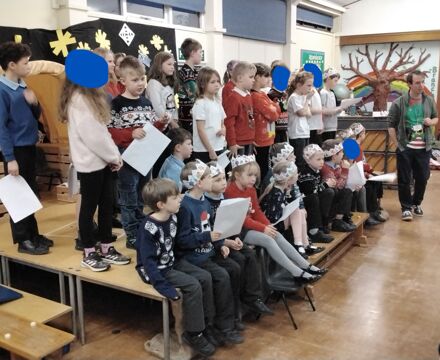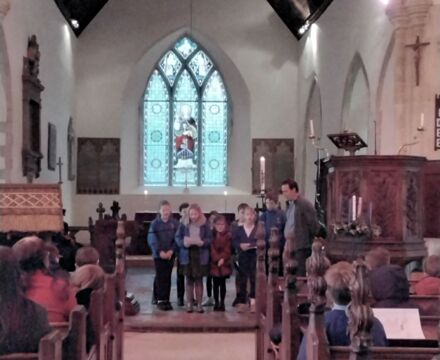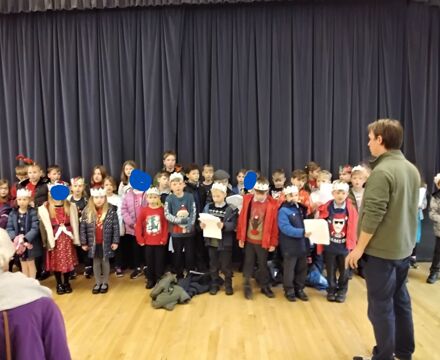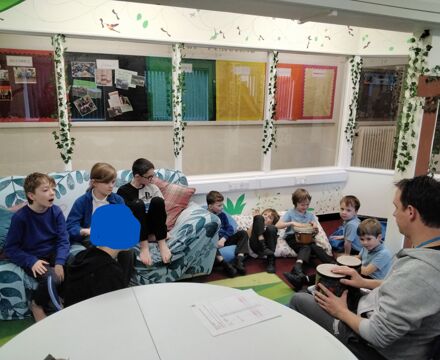Music
Knowledge-Organiser-Year-1.pdf
Knowledge-Organiser-Year-2-1.pdf
Knowledge-Organiser-Year-3.pdf
Knowledge-Organiser-Year-4-1.pdf
Knowledge-Organiser-Year-5.pdf
Knowledge-Organiser-Year-6.pdf
Intention:
‘Music is a universal language that embodies one of the highest forms of creativity.’ (National Curriculum)
At OBPS, our Music curriculum intends to inspire creativity, self-expression and encourage children on their musical journeys as well as giving them the opportunity to connect with others. We hope to foster a lifelong love of music by exposing them to diverse musical experiences and igniting a passion for music. By listening and responding to different styles, finding their voices as singers and performers and as composers, all will enable them to become confident, reflective musicians.
Our teaching focuses on developing the children’s ability to sing in tune and with other people, play tuned and untuned musical instruments with increasing control, fluency and expression and listen critically to a wide range of music from different periods, genres, styles and traditions.
As children progress through the school they will increasingly understand and explore how music is created, produced and communicated through the interrelated dimensions of music: pitch, duration, dynamics, tempo, timbre, texture, structure and musical notation. By Key stage 2 children will begin to improvise and compose music for a range of purposes using the interrelated dimensions of music.
Implementation
Our music curriculum is underpinned by the National Curriculum. We teach music using Charanga. Charanga is a scheme of work which offers a topic-based approach to support children’s learning in music.
A steady progression plan has been built into Charanga, both within each year and from one year to the next, ensuring consistent musical development. By using Charanga as the basis of a scheme of work, we can ensure that they are fulfilling the aims for musical learning stated in the National Curriculum.
Charanga includes many examples of music styles and genres from different times and places. These are explored through the language of music via active listening, performing and composing activities, which enable understanding of the context and genre.
Charanga provides a classroom-based, participatory and inclusive approach to music learning.We teach music to all children, whatever their ability. Music forms part of the school curriculum policy to provide a broad and balanced education to all children.
Instrumental learning is explicitly and progressively taught through the Charanga units. Our Music Leader is a specialist music teacher. Each class from Years 1-6 to have the opportunity to be taught by Mr Humphrey for half a term in this academic year. These sessions will focus on developing musical skills to play a tuned instrument. A core part of these sessions is for pupils to work towards a performance to the school or to a group of children within the school.
Throughout the scheme, children are actively involved in using and developing their singing voices, using body percussion and whole-body actions, and learning to handle and play classroom instruments effectively to create and express their own and others’ music.
While Music is not a timetabled weekly lesson in EYFS, music opportunities are planned for as part of continuous provision as well as discrete lessons where appropriate. Teachers will seek opportunities to teach new concepts and topics through songs. In KS1 and KS2, children will take part in weekly music lessons. They will be given opportunities to learn music specific vocabulary in a meaningful context. Through a range of whole class, group and individual activities, children have opportunities to explore sounds, listen actively, compose and perform. skill and given chance for collaboration through composition.
In addition to this, all children have access to a weekly Music assembly led by our Music Leader. This will be used to embed singing across the curriculum as well to increase opportunities for class and whole school performances.
Each half term we have a theme for our Music assemblies. The themes this academic year are:
Autumn 1: Instrument families
Autumn 2: Christmas songs
Spring 1: 50s music
Spring 2: Brit Pop
Summer 1: Modern pop/Rock
Summer 2: Noughties
At the beginning of each half term, in the first assembly the whole school is given the option of 2 or 3 different songs in the style for the half term. Then the whole school has a vote on which song they would like to learn to sing. Some favourites over the last two years have been, Smoke on the Water by Deep Purple, Hound Dog by Elvis Presley and Whiskey on a Sunday by The Dubliners.
The teaching within school will be supplemented via access to RockSteady music lessons, our Music tutor and our After School Choir, The Nightingales.
The Nightingales
Our after school club choir is a free club available for any children from years 2 to 6. The choir has been singing together for the last two school years and we are continuing to grow and develop. We are taking on more challenging songs and have high ambitions for what we can achieve. Last year we performed at the Norfolk Music Festival with other schools within Sapientia trust. We have also performed at the Christmas luncheon club in Old Buckenham Village hall for the last two years. We support the rest of the school to perform at our annual carol service at Old Buckenham and we perform to the parents of the choir children every half term. We hope to continue our ambitions and perform at the Norfolk Music Festival again this year and hope to join the Young Voices choir next year.
Impact
All children will participate in quality music sessions across the year with each unit of lessons showing the objectives of the lesson; progression; key vocabulary and teacher assessment opportunities.
The Charanga Scheme of Work has clear sequences of lessons, lesson objectives and outlines, along with the resources needed to teach them; this will enable all members of staff (including non-specialists) to deliver well-planned quality lessons, with appropriate differentiation.
Subject Leaders measure the impact of our curriculum through the following methods:
- Summative assessment of pupil discussions about their learning.
- Recordings of the children’s practical learning.
- Interviewing the pupils about their learning (pupil voice).
- Annual reporting of standards across the curriculum.
Children in Foundation Stage are assessed within Communication & Language Expressive Arts and Design and their progress is tracked termly using PupilAsset.
| Page Downloads |
|---|
| Long Term Curriculum Plan MUSIC 23 24 Easy read |



